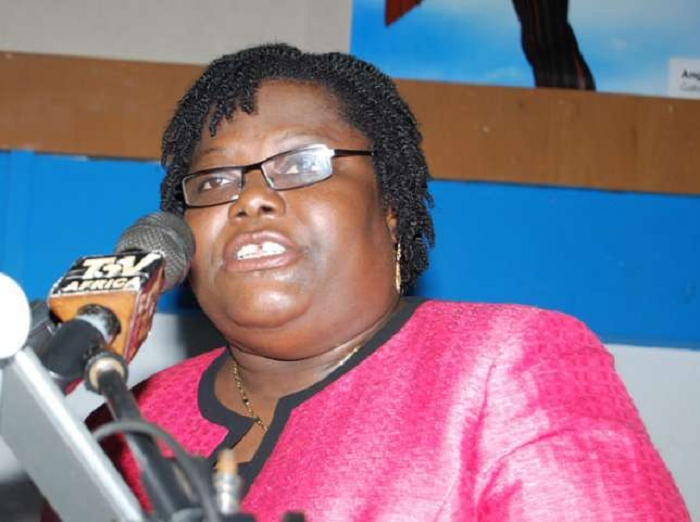
Affirmative Action Law for Ghana - Sowing seeds on cultivated land
The call for the passage of an Affirmative Action Law for Ghana is gathering steam, and gladly so. Dr Raymond Atuguba of the Faculty of Law, University of Ghana has added his voice to the call. He said gender advocates should push for the passage of the Affirmative Action Bill, and that the Bill has good intentions to empower women to be economically independent. He believes gender inequality can be tackled through an Affirmative Action Law. I believe so too.
Women in positions
Over the decade, we have chalked up major successes in appointing women to key governance positions, especially in the Public Service. We have had a female Speaker of Parliament, female Inspector General of Police, female Director General of Immigration Services, female Government Statistician, female Director General of the Ghana Aids Commission, female Director General of Ghana Prisons Service, female Chairperson of the Public Services Commission, female Accountant General, female Director of GIPC, female Chair of the Electoral Commission, two female Chief Justices, back to back, old girls of Wesley Girls High School if I may add! A female Chief of Staff and a female Secretary to Cabinet. Not bad at all for Ghana. Cultivated land ripe for a female President.
However beneath the surface, women in leadership positions in Ghana are still few and far between. From 1954 when we began voting by adult suffrage until 2012, we have never had more than 10 per cent representation of women in Parliament. It was only after 2013 that we have consistently gone past the 10 per cent. In 1957 it was zero per cent, no woman, 22 years later in 1979 it rose to 3.6 per cent and then 10.9 per cent in 2004.
It took a dip thereafter until 60 years after independence and in 2017, we have the highest number of women in Parliament – 36 out of 275, 13 per cent. It has taken us 60 years to reach 13 per cent representation, does it mean it will take us another 60 years to double it to 26 per cent, still short of the United Nations Economic and Social Council (UN ECOSOC) recommendation of 30 per cent as the minimum critical mass of women we need in Parliament?
Electorial system
This is the result of the first past the post-political system that we adopted as a nation. This political system, coupled with our socio-cultural environment, results in low representation of women into elected office. The figures are worse for local government or district assembly elections. Whereas 17,783 men contested for the 2015 district assembly elections, only 1,182 females contested.
In terms of a cultivated land, the legal basis for an Affirmative Action Law in Ghana is well settled. The Constitutional Review Commission (CRC) recommended that Parliament should enact a comprehensive Affirmative Action Act to address broader issues of inequality and this should be enacted within six months of coming into force of the amendments. This was affirmed in the White Paper to the CRC. The legal basis for this law can be found in Article 17 and 35(5) of the 1992 Constitution.
Affirmative Action Bill
The fact is that very few women hold political leadership positions in Ghana, and the trend towards increased numbers and participation though on course is painfully slow, real dead slow. Are we barely creating cracks in the glass ceiling? When will we break that glass ceiling? When?
Women must be in leadership to speak to women issues. Ghana is grappling with the issue of domestic violence. Violence against women is still high in Ghana. It constituted 85.4 per cent of the cases reported to the Domestic Violence and Victims Support Unit (DOVVSU) in 2012, and only 0.67 per cent conviction rate was achieved for the cases reported. This means gender-based violence largely goes unpunished by the law. A 2016 research conducted by the Ministry of Gender, Children and Social Protection (MoGCSP) showed 71.5 per cent of women reported having experienced one form of violence in their lifetime. Despite interventions to address gender-based violence, the figures still remain the same, if not higher. A 1998 research revealed that one in three women had experienced gender-based violence.
Our economy thrives on medium and small enterprises and these enterprises are dominated by women. World Bank data from 2010 shows that 84 per cent of active Ghanaian female population are engaged in vulnerable employment. Employers who are female are only 3.7 per cent. Females constitute 92 per cent of the labour force in the informal sector. Women must speak to these economic and labour issues.
The ‘kayayo’, a social development issue, has now become a political issue. Debates abound between the two major political parties in Ghana as to how they should be empowered and supported. At the end of the day, ‘kayayei’ are real human beings, flesh and bones who have to be empowered with sustained livelihoods to enable them to survive, live decently and support the development of Ghana.
The purpose of the Affirmative Action Bill is to promote the full and active participation of women in public life by providing a more equitable system of representation in electoral politics and governance structures.
The approval of the Affirmative Action Bill by former President John Mahama’s Cabinet and its subsequent laying in Parliament in 2016 signifies the beginning of great change for all Ghanaians. The Bill has since lapsed with the commencement of the sixth Parliament of the Fourth Republic and I was pleased to hear President Nana Addo Dankwa Akufo-Addo mention its promulgation as one of his priorities in his State of the Nation Address on February 22, 2017.
